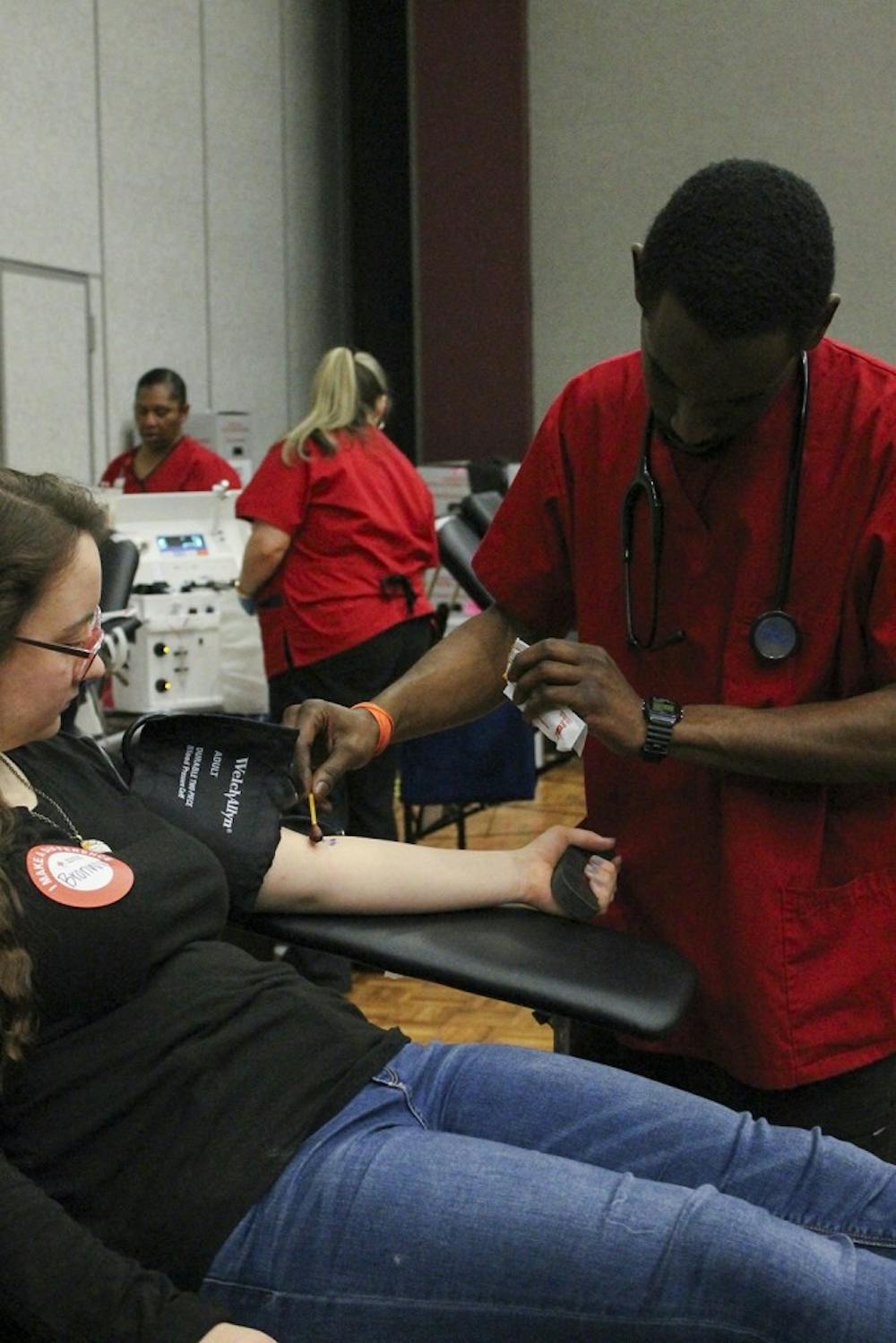One of USC's newest student organizations, Garnet Givers, brought their first Red Cross blood drive to USC to celebrate Valentine's Day.
The organization looks to help meet the often urgent need for blood in South Carolina, which blood drives such as this one attempt to remedy.
“We have over 30,000 students at the university and with such a dire need for blood in our community, we have such a power to do good and give back in life saving ways,” said Kelly Miles, second-year nursing student and president of Garnet Givers.
Miles began Garnet Givers her first year at USC after seeing the need for increased blood donation. What started off as an idea has become a campus-wide event.
“It’s just so exciting to see all of the different students that come out to donate blood. I know it’s time consuming, it takes time to sit here and wait and then actually go through the donation process and everything," she said. "It’s awesome to see how many students right here at USC want to give back and help our community."
The annual Clemson-Carolina Blood Drive always draws a large number of students and community members, but Garnet Givers wanted to bring blood drives to campus more often.
“By bringing more blood drives to USC it makes it more accessible for our students to give back to the community,” said Miles.
On average, it takes around an hour to donate blood. A regular donation will help three patients receive the red blood cells, platelets and blood plasma they need. People that have a rare blood type such as AB+ are even more valuable to the Red Cross. Those that fall in that category are often contacted by the Red Cross in order to donate. That's an experience that has motivated students like first-year undeclared student Carson Rosenbaum to donate.
“The Red Cross called me yesterday and said they had a kid that needed platelets. I have a rare blood type so I donate blood often,” Rosenbaum said.
Libby Wright, a Red Cross account manager for blood services, sees collegiate blood drives as a chance to promote the creation of lifelong donors.
“The younger you are that we educate you about donating blood and why it’s important, the better it is, because we want you to understand that we need blood constantly,” Wright said.
After donating blood, you are eligible again in about two months. Every donation goes to help a patient who is in need of blood.
“You can make a difference in someone’s life every eight weeks,” Wright said.

